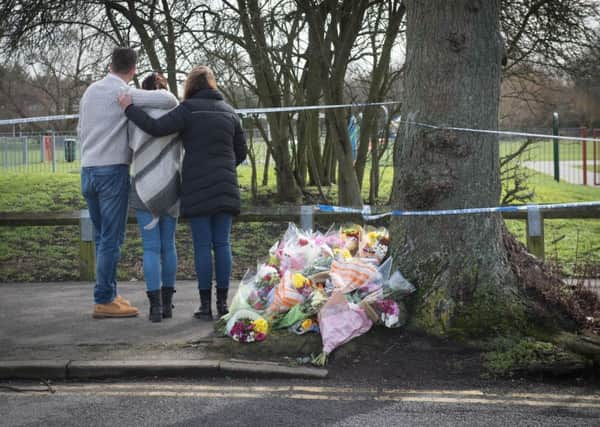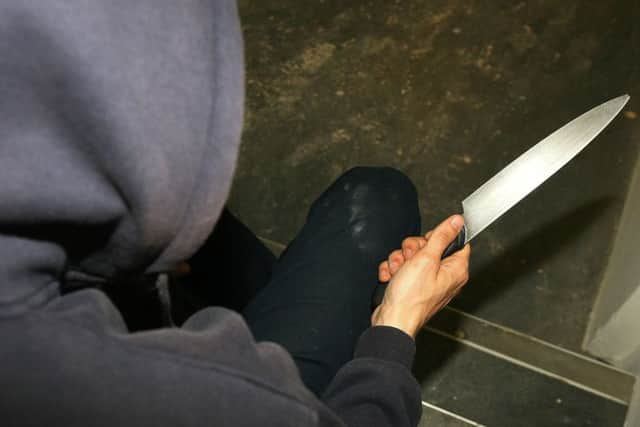David Behrens: Boot camp could be the answer to rid society of knife crime


She was 17 and clearly an outstanding young woman for whom university and a brilliant career was a given. But last weekend, as she sat on a park bench with her boyfriend, someone pulled out a knife and stabbed her to death. She is one of 16 young people to have lost their lives to knife crime this year.
It had been easy for middle-class parents such as myself to feel disconnected from the gang culture that infests our biggest cities, parts of Sheffield and Leeds included, because it was one our own children were unlikely ever to embrace.
Advertisement
Hide AdAdvertisement
Hide Ad

But Jodie’s death and that of Yousef Makki, a scholarship pupil of Manchester Grammar School, 24 hours later, stripped away the false sense of security in which we had buried our heads. It was no longer necessary to associate with gangs to become their victims.
Every parent will have experienced a momentary flash of terror at the thought that their own child might be next. However remote the chances, the randomness of these latest attacks puts everyone in harm’s way.
Politicians responded, as they always do, by arguing among themselves. Had cutting police budgets contributed to the proportionate rise in knife crime? Theresa May said not, but honestly, it can’t have helped, can it?
Advertisement
Hide AdAdvertisement
Hide AdIt’s not entirely the point, though. At the root of the problem is understanding why so many teenagers carry knives in the first place, and what can be done to stop them.


Self-defence is the justification most often cited. Boys carry blades because they are frightened; they want protection from each other, one 15-year-old told the BBC.
There was clearly nothing defensive about this week’s attacks, though.
The forces at play here are bravado and swagger; the knowledge that if you step outside with a knife in your pocket, you are very unlikely to have to face the consequences.
Advertisement
Hide AdAdvertisement
Hide AdThe statistics bear this out. Only one in eight of the teens to have been caught with a blade has been given a spell in youth custody, according to figures from the Ministry of Justice. The rest are let off with a warning or a community sentence – either of which will be worn as a badge of honour.
And it is the tip of the iceberg. Most of those with knives will not be detected at all. Even when a crime is committed, the police are often not called. Only the most serious offences are even placed on their radar.
Education alone cannot change this mentality. Indeed, the crime commissioners in West and South Yorkshire, and Humberside, were among those pointing out that many of the perpetrators have already been excluded from school. It could not be right, they said, that so many were outside of mainstream education.
Where then should they be? A regular school is no place for youths with knives in their pockets. They have already stabbed in the back, figuratively speaking, any teacher who might have tried to help them.
Advertisement
Hide AdAdvertisement
Hide AdPrison is not a practical answer, either – the depositing of hordes of disenfranchised teenagers is the last thing our overstretched system needs.
But we are going to have to devise an effective deterrent to offending – and the one that will give teenagers such as that frightened 15-year-old something to really worry about is the certainty of an automatic sentence for possessing a lethal weapon, whether it is used or not.
What sort of sentence? The Defence Secretary, Gavin Williamson, may have unwittingly put his finger on a possible answer when he said on Tuesday that the military was “ready to help”.
He didn’t say how, and I’m sure he doesn’t want to see soldiers in our city centres, trying to keep the peace outside McDonald’s on a Friday night, any more than I do. But the prospect of sending those caught with knives to a boot camp and submitting them to a few weeks of Army discipline might finally knock some civility into them.
It would be a blunt instrument, for sure, and Mr Williamson should be careful what he wishes for – but it may also be the corrective measure a section of our society needs right now.